You’ll find yourself a lot more successful and happier when you successfully collaborate with challenging coworkers
In the dynamic realm of the workplace, it's not uncommon to find yourself teamed up with individuals who might not be your cup of tea. The reality is that while we can't always choose our coworkers, we can certainly choose how we navigate working with them. Whether they trigger annoyance, discomfort, or outright anger, learning how to collaborate effectively with someone you can't stand can be a valuable skill for career growth and personal development.
Understanding Remote Dynamics
In an era of remote work, the challenges of dealing with colleagues you don't particularly like takes on a new dimension. While virtual collaboration can provide a degree of distance, it also strips away vital nonverbal cues and context that are crucial for understanding interpersonal dynamics. Carlos Valdes-Dapena, the author of "Virtual Teams: Holding the Center When You Can’t Meet Face-to-Face," points out that while you can avoid looking at them on camera, this distance can exacerbate misunderstandings and hinder effective communication.
Owning Your Emotions
One crucial step towards resolving conflicts with colleagues you find challenging is recognizing that your feelings are your own responsibility. Valdes-Dapena emphasizes that disliking someone is a personal reaction that stems from your judgments and emotions. Taking ownership of these feelings is a fundamental starting point, enabling you to address the issue with a clearer perspective.
Distinguishing Dislike from Distrust
It's essential to differentiate between not liking someone and not trusting them. While you may not get along with a colleague, as long as they adhere to professional boundaries and workplace norms, collaboration remains possible.
Reframing Your Perspective
"Dislike" is an umbrella term that encompasses a range of emotions and triggers. Delving deeper into the specific reasons behind your feelings can lead to better management of your reactions. Instead of dismissing your discomfort, dissect it. Valdes-Dapena illustrates this with a personal example where he transformed his negative feelings toward a coworker's behavior into a realization of his own insecurities. Reframing is the cornerstone of managing dislike effectively.
Unpacking the Importance of Collaboration
Understanding the underlying reasons for collaborating with a challenging colleague is vital. Perhaps it's a high-stakes project or a chance to showcase your teamwork skills to your superiors. Develop a purpose statement that aligns with your goals and the larger mission of your organization. This statement not only acts as a compass but also aids in forging a common ground for working together.
Crafting a Path Forward
Communication is key in navigating complex professional relationships. Sharing your purpose statement with your challenging colleague, along with clearly defined roles and responsibilities, can lead to smoother collaboration. Engaging in a candid conversation about your motivations and expectations can humanize the other person and offer a fresh perspective. In moments of tension, referring to your purpose statement serves as a reminder of the shared objective.
Seeking External Perspectives
When in doubt, it's beneficial to seek insights from trusted friends or managers. An external viewpoint can shed light on your blind spots and provide alternate interpretations of the situation. Give your colleague the benefit of doubt, and remember that everyone has strengths that contribute to the team's success.
The ability to work well with colleagues you find challenging is a testament to your adaptability and resilience. Instead of allowing friction to hinder your productivity and well-being, embrace the opportunity to develop crucial interpersonal skills. By owning your emotions, reframing your perspective, and establishing a shared purpose, you can transcend personal biases and cultivate a more productive working relationship.





